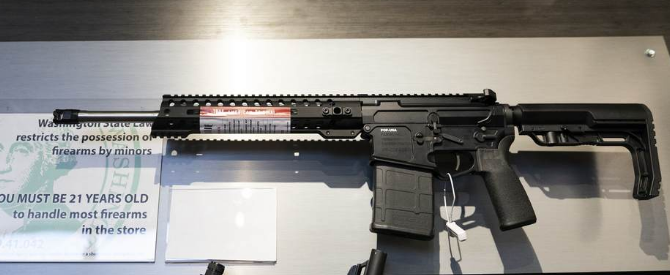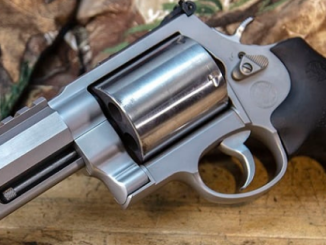
In a major decision on gun control, a federal judge’s ruling on Friday upheld Massachusetts’ ban on assault weapons, rejecting a challenge based on the Second Amendment and the Supreme Court’s ruling on New York Rifle & Pistol Association v. Bruen.
The court’s decision delves into the constitutional, historical, and societal aspects of gun control legislation, and favors the notion that more restrictions on firearms will promote public safety.
{snip}
However, Judge Dennis Saylor held that “the statute comports with the requirements of the Second Amendment and therefore plaintiffs cannot demonstrate a likelihood of success on the merits of their claims.”
One of the judge’s primary arguments was the specificity of the law banning semiautomatic weapons.
The Act does not prohibit weapons based on their semiautomatic function; it only bans some semiautomatic weapons based either on their specific make and model or through an enumerated list of features not their firing mechanism.
The argument is that the law specificity targets only certain firearms deemed to be too dangerous while allowing the use of other weapons. The judge argued that the law did not impose a sweeping prohibition on certain classes of guns, which would run afoul of the Bruen decision, just those deemed to be most harmful.
Under that framework, handguns, rifles, and shotguns are the general types of firearms that are in common use by ordinary citizens for lawful purposes. Machine guns are not. Nor, for that matter, are mortars, rocket launchers, or shoulder-fired missile systems. Even so, some types of handguns, rifles, or shotguns might be subject to government regulation if that restriction is consistent with the historical tradition of governing “dangerous and unusual” weapons. Thus, for example, while shotguns as a general class of firearms might warrant presumptive protection, short-barreled shotguns are “dangerous and unusual,” and therefore may be regulated.
{snip}
The judge essentially contrasted the evolution of gun technology with historical firearms to justify the ban. It is similar to a common argument made by anti-gunners insisting that when the Founding Fathers created the Second Amendment, they could not have foreseen the advances that would be made in gun tech, therefore it makes sense to ban “assault weapons.”
According to the defendant’s experts, guns during the colonial and founding eras were mainly muskets and fowling pieces that could fire single shots and had to be manually reloaded. Firearms capable of firing more than 10 rounds did technically exist, but they were “anything but common, ordinary, or found in general circulation.”
Massachusetts has some of the strictest gun laws in the nation. Anti-gunner organization Everytown for Gun Safety ranks the state as sixth in the nation. It also has an A- rating from the Giffords Law Center, another anti-gun entity. Along with the assault weapons ban, it also requires gun owners to possess a license, which involves a background check, training, and an interview with local law enforcement in some cases. Nevertheless, gun homicides have increased by 111 percent over the past 25 years.
The National Association for Gun Rights vowed to appeal the ruling.
* Original Article:
https://redstate.com/jeffc/2023/12/23/federal-judge-rejects-challenge-to-massachusetts-semiautomatic-weapons-ban-n2167888


